2020 will forever be remembered as one of the most infamous years in human history. Not only was the world affected by Covid-19 in ways that we could not have begun to imagine but there were a few news headlines relating to air pollution and air quality that 2020 will be remembered for too.
-
On 1st June 2020, the highest levels of atmospheric CO2 were recorded at Mauna Loa Observatory. Which is higher than at any time in the past 200,000 years of human’s existence on the planet.
-
9-year-old, Ella Adoo-Kissi-Debrah became the first person in the UK to have ‘air pollution’ listed as a cause of death.
-
UK air pollution levels fell to their lowest levels in decades due to lockdowns.
-
Air quality across the UK found to be the same or worse than pre-pandemic levels.
Whilst the above headlines individually tell different stories, together they highlight the problems we are facing and the need to educate and raise awareness around the risks associated with poor air quality and air pollution that is why, this year we are celebrating Clean Air Day!
What is Clean Air Day?
Clean Air Day was launched in 2017 and is the UK’s largest air pollution campaign. Led by Global Action Plan, Clean Air Day was created to help the public understand the risks associated with both indoor and outdoor air pollution, to help build awareness of the affects air pollution can have to our health, and the actions that can be taken to not only protect our health, but the environment too.
Each year Clean Air Day takes place on the third Thursday of June, this year being Thursday 17th June 2021. Except for last year (2020) when it had to be postponed to October due to the Covid-19 pandemic.
A number of events are held around the country by different organisations to celebrate and raise awareness about Clean Air Day. If you would like to get involved, there are a number of free resources on www.cleanairday.org.uk for everyone to be inspired and participate.
Air Pollutants
Before we look at the effects of air pollution and poor air quality let’s take a look at what an air pollutant is and where they come from. A pollutant is a contaminated substance that causes a negative effect to human life, animal life, plant life or property. What makes it an air pollutant is simply that it can be found and transported in the air.
Air pollutants come in two forms, gaseous such as;
• Carbon Monoxide (CO)
• Carbon Dioxide (CO2)
• Nitrogen Oxides (NO and NO2)
• Sulfur Dioxides (SO2)
• Ozone (O3)
• Volatile Organic Compounds (VOCs)
• Formaldehyde
And particulate matter (aka PM);
• Smoke
• Dust
• Ash
• Mist
• Smog
• Bacteria and fungi
What makes air pollutants so dangerous, specifically the gaseous forms are that you cannot always see or smell them. Particulate matter pollutants are easier to see and can even be seen from miles away especially when large amounts are concentrated.
So, now we know what they are, let’s look at where they come from.
Some air pollutants come from naturally occurring events such as Volcanic eruptions, forest fires, hot springs and sea spray. However, these sources emit very little pollution in comparison to man-made activities such as;
• Industrial processes
• Power generation
• Waste management
• Transportation (cars, planes, trains, shipping)
• Machinery (non-transport)
• Construction and Demolition
• Agriculture and farming
• Stationary combustion (wood and coal burning)
• Household cleaning and personal products
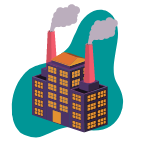
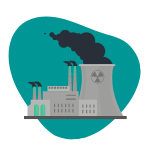


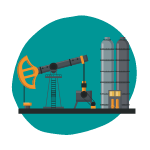




In the UK, the biggest sources of air pollutants are stationary fuel combustion and road transportation and it’s worth noting that air pollutants from road transportation doesn’t just mean what comes out of the exhaust. Particulate matter from tire and brake disc wear as well as dust/dirt on the road that gets flicked up into the air forms part of the pollution caused by road vehicles.
Health implications
Air pollution has a significant effect on public health and has been linked to both short term, long-term health conditions and in some cases death.
As air pollutants are suspended in the air, the main way they enter our bodies is by breathing them in and with the largest particle being 30 times smaller than the thickness of a strand of hair, you wouldn’t even notice if you were exposed to them. It would then seem fair to think that our lungs would be the only organs that would be affected. This isn’t true, air pollution can actually affect various parts of your body such as your nerves, blood and all of your organs including your heart!
Short term effects
• Skin irritation
• Headaches and dizziness
• Eyes, nose, and throat inflammation
• Lung conditions (such as bronchitis and pneumonia)
• Coughing and breathing pain
• Asthma flair ups



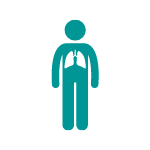


Long term effects
• Asthma
• Heart disease
• Lung conditions and lung cancer
• Nerve damage
• Organ damage;
(Liver, kidneys, brain, spleen and even reproductive organs)
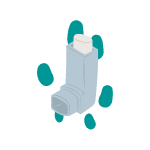

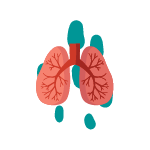

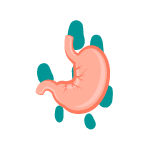
There are a number of factors that will affect how air pollution affects our health, from age to length of exposure and existing medical conditions, however one thing remains true; poor air quality affects all humans throughout their lifetime. Typically, children and adults with weaker immune systems tend to be more sensitive to the effects of air pollution. Luckily, there are plenty of things we can do to help reduce our contribution to local air pollution and reduce our exposure.
Air Quality Index
Before you lock yourselves indoors or put on a heavy-duty mask to pop to the shops it is worth remembering that the air outside is not always at toxic levels. The Department for Environment Food and Rural Affairs (DEFRA) have created the Daily Air Quality Index (DAQI) which lets you know the pollution levels in your local area and provides recommended actions and health advice based on that level.
Indoor Air Pollution
In 2018 a study found that us brits spend around 90% of our time indoors. With lockdowns and an increase in working from home this figure is potentially higher. Think about it, how much time do you actually spend outside?
But wait, with all those air pollutants about outside surely, it’s better to be inside… right?
Well, not necessarily… a Clean Air Day study conducted by Global Action Plan found that pollution inside a home is on average 3.5 times higher than outside. Which considering we spend most of our time inside, that’s quite a concerning fact.
These high levels of indoor pollution are caused by polluted air from outside mixing with pollutants from furnishings, cooking, heating, and cleaning products inside. The pollution within a building builds up and takes longer to disperse than outdoor pollution. So, what can we do?
How we can help
Here, at QuinnRoss Energy we understand the many negative impacts that poor air quality can have on public health and the environment. We also understand the many benefits that good air quality can have too. So, whether you are looking to improve the quality of life for your family or staff, or looking to re-furbish your property and want to ensure you have good air quality or if you have a proposed development that you want to make sure complies with local policies (such as the London Plan 2021), we can help.
Indoor Air Quality Report
We can undertake an Indoor Air Quality Report that will be produced bespoke to your building and will outline what measures may need to be taken to improve air quality and the health and wellbeing of its occupants. We can also produce these reports for your BREEAM projects.
Air Quality Assessment
We have also developed an Air Quality Assessment to help at the planning phase of your project. This assessment is undertaken in accordance with the relevant national, regional, and local planning policies and will;
• Establish existing air quality.
• Establish nearby sensitive receptors.
• Assess air quality and dust impacts during construction.
• Assess air quality during operation.
• Evaluate the outline proposals against the AQA benchmarks.
• Assess the mitigation strategy to limit the building users and nearby receptors to air pollution.
If you would like more information, please contact one of our team members who would be more than happy to help.

